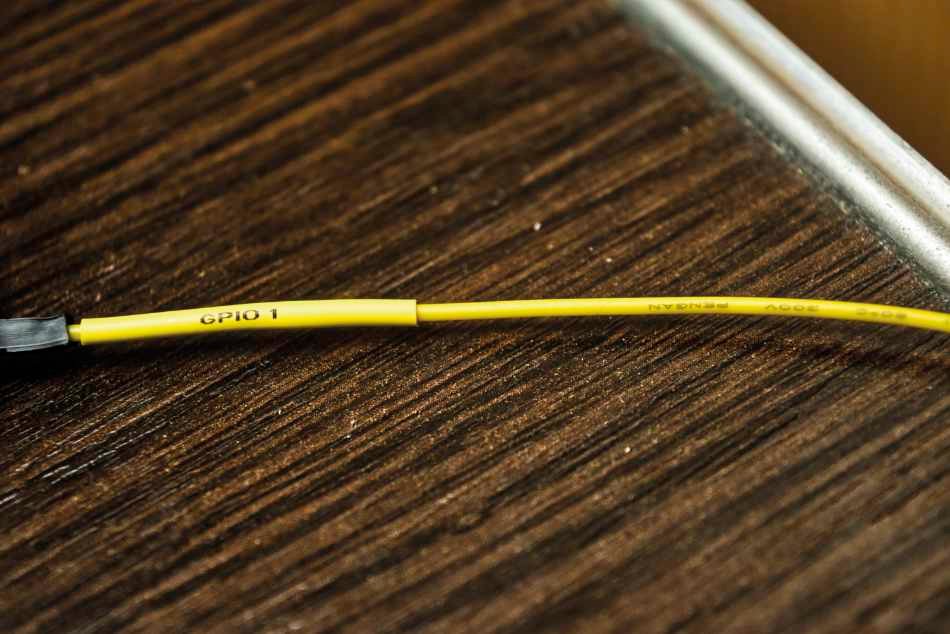Dymo Rhino Heat Shrink Tubing
Dymo's heat shrink tubing is a great way to make cable labels look professional. The high entry price of the system and price of these tapes push them to the expensive side, but the overall quality and utility is unmatched.
Pros
- Most professional-looking solution for cable management
- Wide variety of cable sizes supported
- Classic Dymo durability
Cons
- Very expensive
- Cartridges don't contain too much tape
Dymo’s versatile industrial range of Rhino 5200 labelling tools offers an array of materials and colours suitable for a variety of applications. All of the labels are tested and certified to withstand tough industrial conditions – which include extreme temperatures, direct sunlight and exposure to water, oil or other chemicals. Currently, Dymo offers vinyl (both standard, coloured and self-laminating), polyester, nylon, non-adhesive and shrink-wrap tags. Each of these have unique properties making them most suitable in specific scenarios.
What separates the Rhino line is the cartridge technology – most office label printers use thermal paper or tape which, while cheap, isn’t a permanent labelling solution. Such labels are very sensitive to higher temperatures – and on top of that they have a tendency to fade after a while. Rhino tapes use thermal transfer technology – meaning that the ink is transferred from a separate heat-sensitive ribbon onto the label tape. The ink ribbon runs parallel to the label tape and is advanced along with it, providing a fresh surface each print. This method has serious advantages over the conventional one – as it opens up a whole library of possible label materials and colours while also enabling the printed labels to be thermally stable.

With this in mind, it’s easy to see why the Rhino 5200 is one of the very few handheld label makers offering a heat shrink tubing option. Traditional label printing methods simply cannot produce labels which can withstand the hot air used in their application.
These shrink tubes are available in 6 mm, 9 mm, 12 mm and 19 mm sizes, suitable for cables of up to 2.33 mm, 3.73 mm, 5.13 mm and 8.70 mm in diameter, respectively. All of these tubes are made of polyolefin and come in white and yellow.

On our review bench today we have two cartridges of the tubing – in 6 mm and 9 mm sizes. The process of printing and cutting doesn’t differ from any other type of tape. Once cut, the application process is extremely simple. The labels also offer quite a lot of versatility – a surprising amount even – being able to wrap around the tiniest 1mm jumper wires. Before being blasted with hot air the tubes are pretty flexible and pliable, but toughen up significantly as they shrink, leaving you with a permanent, strong feeling cable marking. Even small cable bundles, like two or three GPIO wires can be labelled together (and even held together!) with these due to their high tear resistance and flexibility.
While there’s only 1.5 m of heat shrink tubing in the cartridge, that’s more than enough for over 70 two-centimetre permanent cable labels. It’s certainly a more expensive option compared to vinyl or nylon tapes, which can be used to create cable flags or wrap-around labels, but it’s also a more permanent and professional-looking one.

Dymo’s heat shrink tubing is a unique option for its handheld label printers – and is certainly an attractive one. Adding a cartridge or two of it won’t break the bank – at around 25 euros each – and will certainly allow for sleeker, more durable labels for use in jobs where finishing touches are key.


